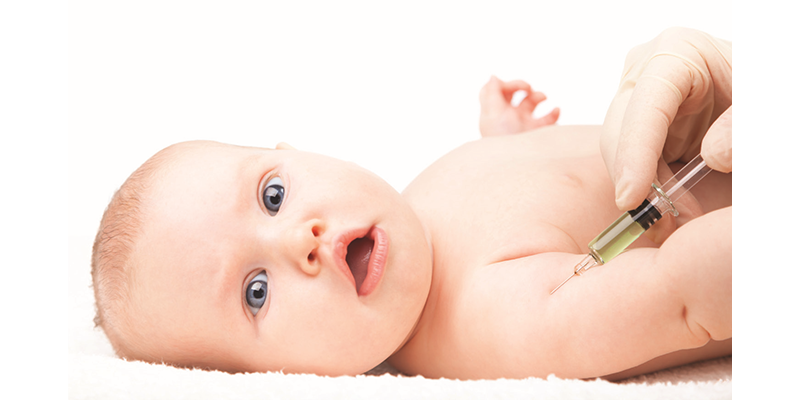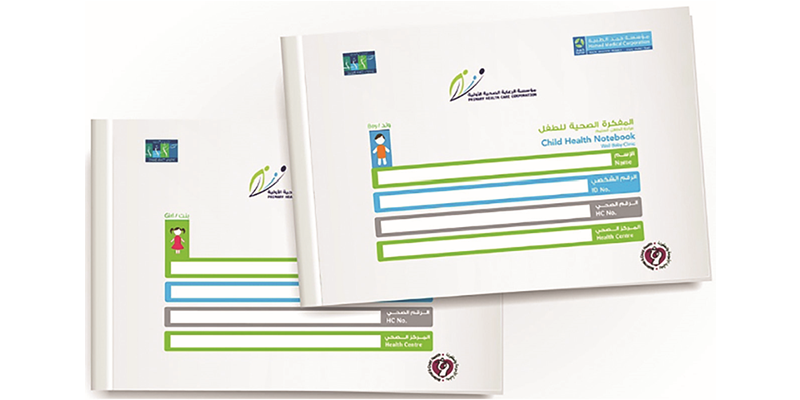Baby vaccinations after Birth

This booklet will provide you with information about Bacille Calmette-Guerin (BCG) and hepatitis B vaccination that your baby should receive after birth.
Vaccination is the most important thing we can do to protect ourselves and our children against diseases. Since vaccines were introduced diseases like smallpox, polio and tetanus that used to kill or disable millions of people are either gone or seen very rarely. If people stop having vaccines, it is possible for infectious diseases to quickly spread again. We now have vaccines to prevent more than 20 life threatening diseases, helping people of all ages live longer, healthier lives
Having a vaccine also benefits your whole community through “herd immunity”. If enough people are vaccinated, it is harder for the disease to spread to those people who cannot have vaccines. For example, people who are ill or have a weakened immune system.
What is Immunity?
Immunity is the body’s way of preventing disease. When your baby is born, their immune system is not fully developed. This can put them at greater risk for infections. Vaccines reduce your child’s risk of infection by working with their body’s natural defenses to help safely develop immunity to disease. That is why they need vaccines to strengthen their immune system.
When germs like bacteria and viruses enter the body, your child’s immune system goes to work. It does three things
- Recognizes the germ does not belong to the body, it is a foreign body.
- Responds by producing antibodies to help destroy the germs.
- Remembers these germs so if they try to infect your child again the antibodies can invade them before they make your child sick.
How do vaccines work?
Inside the vaccination there are killed or weakened germs. These are introduced into the body to cause an immune response like above. Because the germs are killed or weak it does not make your child sick, however it provides immunity. This means that if your child is infected from that germ again, the body will recognize it and attack the germ before it can make your child sick

How safe are vaccines?
All licensed vaccines are thoroughly tested to make sure they will not harm you or your child.
What is Bacillus Calmette-Guérin (BCG) vaccine?
Bacillus Calmette-Guérin (BCG) vaccination is offered to protect your baby against tuberculosis (TB).
Bacillus Calmette-Guérin (BCG) vaccine contains a weakened form of the bacteria germ that causes tuberculosis (TB). Because it is weakened it doesn’t actually cause tuberculosis (TB), but it helps your baby develop protection against tuberculosis (TB).
What is tuberculosis (TB)?
Tuberculosis (TB) is a bacterial infection, it usually affects the lungs but can also affect any part of the body. Infection with the tuberculosis (TB) germ may not develop into tuberculosis (TB) disease. Tuberculosis (TB) disease develops slowly in the body, and it takes several months for symptoms to appear. Most people who have tuberculosis (TB) infection will never develop tuberculosis (TB) disease. In these people, the tuberculosis (TB) bacteria remain inactive for a lifetime. In other people (for example, those who have weak immune systems), the bacteria may become active and cause tuberculosis (TB) disease.
What are the symptoms of tuberculosis (TB)?
Symptoms will vary and the signs of disease in a baby may be different from those of an adult. As TB is infectious, it is important that you can recognize the disease in someone else.
You should contact a doctor if you, your baby, or any other member of your family, or a friend has any of the following:
- Persistent cough that lasts for more than three weeks
- Fever
- Sweating, especially at night
- Unexplained weight loss
- A general and unusual sense of tiredness and being unwell
- Coughing up blood
How is TB caught?
You can only catch TB from someone whose lungs or throat are already infected and who is coughing. When they cough, a spray of tiny droplets is produced that contain the bacteria. If you breathe in the droplets you can catch the infection. It takes close and prolonged contact with an infected person, for example living in the same house, to be at risk of being infected.
How is my baby vaccinated?
Your baby will be given the BCG vaccination in the upper part of the left arm.
This vaccination should be given within the first 24 hours. However, it can be given at any time up to five years, but will be less effective.
What are the side effects?
Immediately after the injection, a raised blister will appear. This shows that the injection has been given properly.
Within two to six weeks of the injection a small spot will appear. This may be quite sore for a few days, but it should gradually heal. It may leave a small scar.
Occasionally, your baby may develop a shallow sore where they had the injection. If this happens apply dry dressing until a scab form. This sore may take several months to heal.
If you are worried or you think the sore has become infected, see your doctor.
What is Hepatitis B?
Hepatitis B is a contagious viral infection which can cause liver disease. Hepatitis B can be very serious. Most people with a recent hepatitis B infection may feel sick for a few weeks to several months. Some people get over the illness but for others the virus remains active in their bodies for the rest of their life and over time can cause serious health problems, and even liver cancer.
Hepatitis B can spread thorough the following:
- Contact with blood of an infected person (even if they show no symptoms).
- At birth
- Open cuts or sores
- Sharing toothbrushes or other personal items
- Food chewed for a baby
- Any infected family member or caregiver can pass the virus to your baby.
- The virus can live on objects for 7 days or more.
All babies should get the first dose of hepatitis B vaccine within first 12 hours after birth. This will reduce the risk of getting the disease from you or family members who may not know they are infected with hepatitis B.
What can I do to protect my newborn baby if I have hepatitis B?
If you have hepatitis B, there is additional medicine that can help protect your newborn against hepatitis B; it’s called hepatitis B immune globin (HBIG). HBIG gives your baby’s body extra help to fight the virus as soon as your baby is born.
Babies at risk of developing hepatitis B infection from infected mothers are given extra doses of the hepatitis B vaccine at birth, 4 weeks and 1 year of age.
Why should my baby get the hepatitis B vaccine?
- Protects against hepatitis B, a potentially serious disease.
- Protects other people from the disease because children with hepatitis B usually do not have symptoms, but they may pass the disease to others without anyone knowing they were infected.
What are the symptoms of Hepatitis B?
Infants and young children usually show no symptoms. Hepatitis B infection causes the following:
- Loss of appetite (not wanting to eat)
- Fever
- Tiredness
- Pain in muscles, joints, and stomach Nausea, diarrhea, and vomiting
- Dark urine
These symptoms usually appear 3 or 4 months after a person gets the virus
How is Hepatitis B spread?
It is spread through contact with blood and body. Infants and young children usually show no symptoms. Babies can be infected from their mother during birth.
How is my baby vaccinated?
All babies should have their first hepatitis B vaccine within the first 12 hours after birth. It is administered by injection into the thigh muscle.
What are the side effects?
Most side effects from the Hepatitis B vaccine are mild, however baby may get a slight fever, discomfort / redness at injection site
Are there any reasons why my baby shouldn’t be vaccinated?
The vaccine should be delayed if:
- your baby has a high fever or is suffering from a generalized infected skin condition
- your baby has, or is suspected of having, a weakened immune system ● the child’s mother had immunosuppressive biological therapy in pregnancy.
- Also, if there is a family history of problems with immune system (including HIV).
How to Prepare for Vaccination
- Ask any questions you may have
- Read any information provided to you
- The doctor/nurse will explain the risks and benefits of the vaccines and also discuss any side effects they may cause.
- Feeding during the vaccine will help soothe and comfort baby or give them their comforter.
- Comfort your baby by cuddling, singing, or talking softly.
Some parents however have a fear of needles. If this is the case, the nurse will take the baby to another room for vaccination.
After vaccination
Sometimes children have mild reactions from vaccines, such as pain at the injection site or a rash. These reactions are normal and will soon go away.
- Swaddle and comfort baby
- Offer breastmilk or formula more often. It is normal for some babies to eat less during the 24 hours after getting vaccines.
- Pay extra attention to your baby for a few days. If you see something that concerns you, call your baby’s doctor.
All parents will be given a personal child health Notebook. You should take this White Newborn Notebook with you to all your visits for the health professional to document and sign the immunization schedule which is in page 52.

Sidra Medicine cares about your health. The information in this leaflet should not be used as a substitute for the medical care and the advice of your doctor. Ask your healthcare provider about this information if you have questions. You can find us on www.sidra.org

